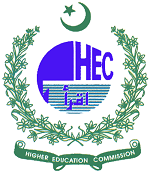Impact of Firm Reputation on Firm Financing Decision: Evidence from Non-Financial Sector of Pakistan
Abstract
Research aims: Literature vows that firm reputation plays dynamic contribution in corporate financing decision. In line with findings of previous studies, this research explores the participation of firm reputation in firm financing specifically in Pakistani non-financial sector data set. Design/Methodology/Approach: Fixed effect model (FEM) applied to check the regression among the variables. Research findings: Findings signify the impact of firm reputation on firm financing decision. The price-earnings (P/E) ratio affiliates positively and significantly with firm financial leverage because an increment in price-earnings (P/E) ratio increases stability of firms. There exists negatively and significantly association between firm age and firm financial leverage due to decreases in usage of financial leverage with the passage of time. The firm age links negatively and significantly with trade-credit because older firms do not desire to use trade-credit. Moreover, assets tangibility has positive and significant impact on trade-credit because tangible assets work as loan collateral to get trade-credit. Policy implication: The study reveals the importance of firm reputation in firm financing decision and it gives financing policy to finance managers, that they can use reputation as an instrument of financing. Firm reputation can help to secure the financial future of firm by mitigating the problem of stringent covenants. Limitations and future research: The time constrains and data shortage problem were faced by conducting this research and missed information of variables from balance sheets and income statements. The further study can be conducted in future by equipping all proxies of firm reputation of FMAC (Fortune Magazine’s Most Admired Companies) list and their effect on other business decisions i.e. investment and borrowing capacity.
Downloads
Copyright (c) 2023 Bilal Haider Subhani, Jaleel Ahmed, Umar Farooq

This work is licensed under a Creative Commons Attribution 4.0 International License.
JFAR follows an open-access publishing policy and full text of all articles is available free, immediately upon acceptance. Articles are published and distributed under the terms of the Creative Commons Attribution 4.0 International License. Thus, work submitted to UMT Journals implies that it is original, unpublished work of the authors; neither published previously nor accepted/under consideration for publication elsewhere. On acceptance of a manuscript for publication, a corresponding author on the behalf of all co-authors of the manuscript will sign and submit a completed Author Consent, Copyright, and Declaration Form.







